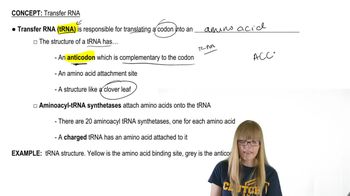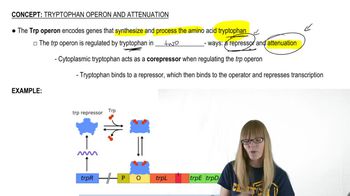What is the likely effect of each of the following mutations of the trpL region on attenuation control of trp operon gene transcription? Explain your reasoning.
Twenty nucleotides are inserted into the trpL region immediately after the polypeptide stop codon.






